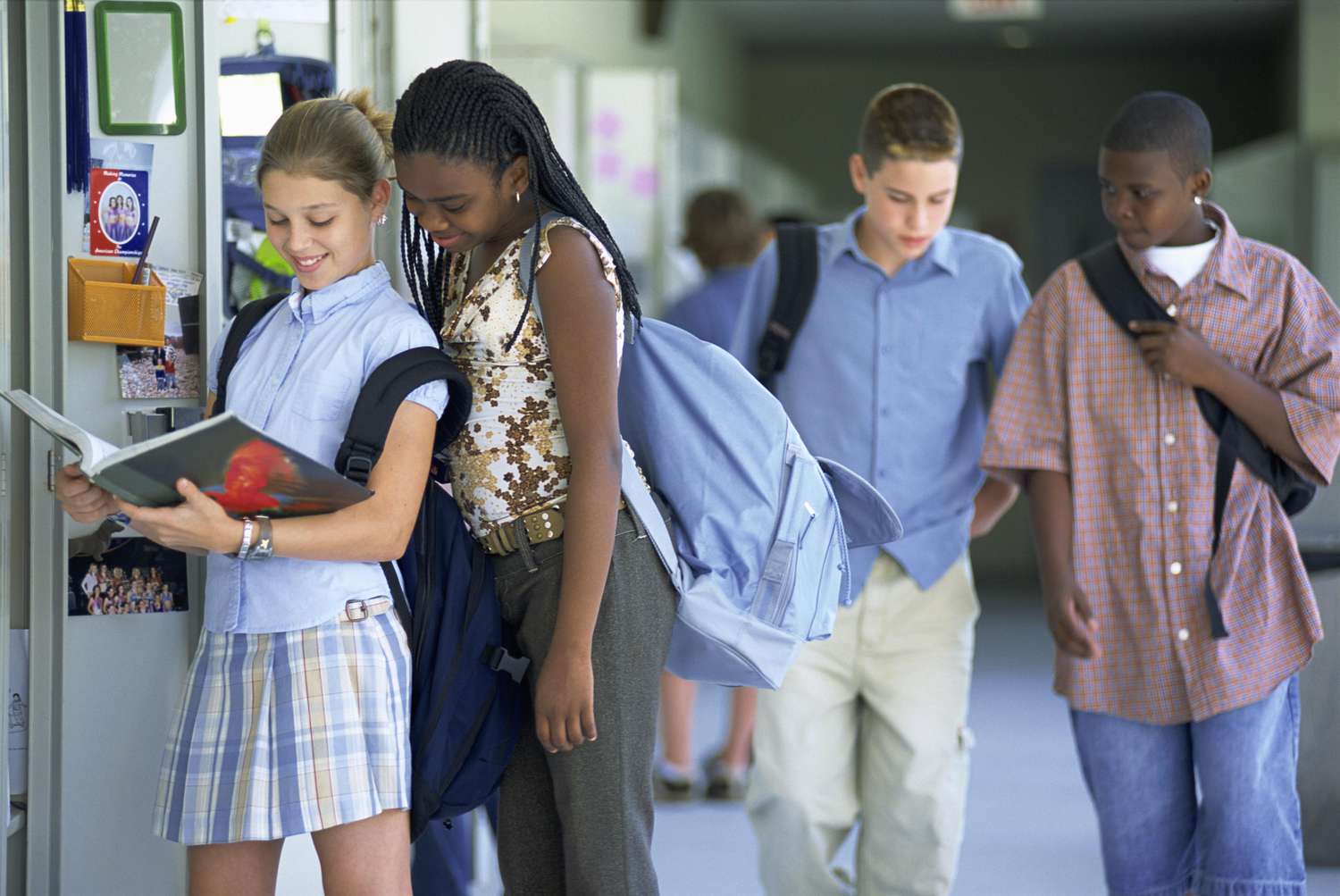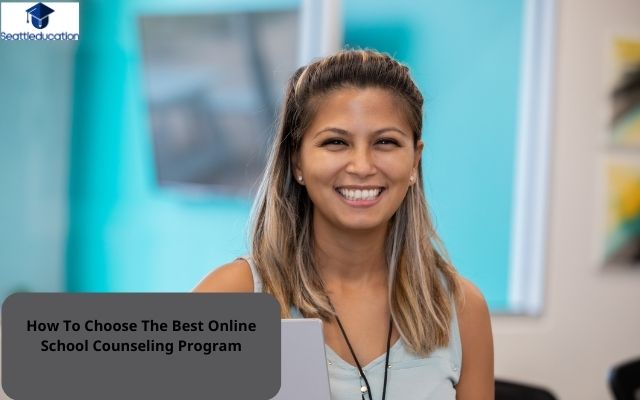Middle School Counselor: Role Of A Middle School Counseling
Being a middle school counselor can be an incredibly rewarding job. It needs persistence, commitment, and the capacity to relate to children throughout some of their formative years. I have worked as a middle school counselor for more than ten years, so I am well aware of how crucial this position is in assisting children as they move through puberty.
Working as a middle school counselor brings its own unique set of challenges and rewards. From building relationships with students to counseling them through difficult topics such as bullying or substance abuse, counselors are essential in providing emotional support throughout these crucial developmental years.
In this article, I’ll share my experiences working as a middle school counselor, tips on how to become one, and advice on how best to foster positive student-counselor relationships.
Overview Of The Middle School Counselor Role
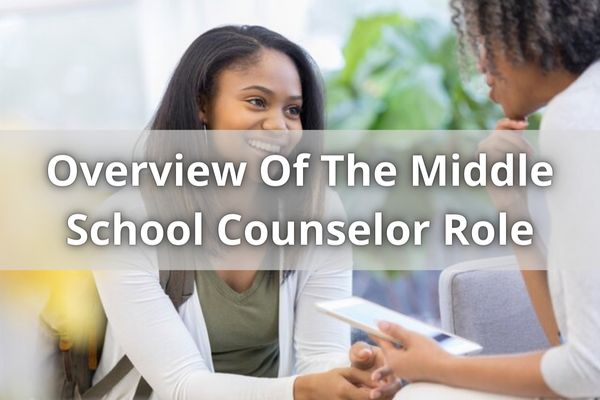
As a middle school counselor, it is my responsibility to assist students as smoothly as possible as they move from childhood to maturity. As part of that role, I work with students on areas like academic achievement, social/emotional learning, career exploration and college readiness. Teachers, parents, and administrators may turn to school counselors for help and information to make sure every kid gets the most out of their education.
School counseling seeks to empower kids by assisting them in identifying their strengths so they may achieve greater levels of academic achievement. Through individual meeting sessions or small group activities, I look at different aspects such as course selection, study habits, stress management and time management skills. Working together we identify any barriers holding back the student’s performance academically and then come up with strategies to address those issues.
Knowing what kind of help a student needs requires me to be attuned to their specific goals and interests. This includes understanding how cultural background or socioeconomic status might impact their ability to succeed in school. By having this awareness I am better able to provide guidance around post-secondary options as well as other resources available both inside or outside school walls that may benefit the student’s overall development.
To start planning for future success, let’s talk about academic planning next…
Academic Planning
Now that we have an understanding of the role a middle school counselor plays in the lives of their students, let’s take a look at academic planning.
Academic planning involves providing guidance to help students realize and achieve their educational goals while they progress through their classroom curriculum. It is important for counselors to provide resources and support to ensure students reach achievement targets – both short-term as well as long-term.
To do this, here are three ways middle school counselors can effectively plan academically with their students:
- Helping them identify opportunities for academic success
- Connecting them to available resources such as tutoring or extracurricular activities
- Assisting in making plans for postsecondary education
By discussing these topics and more, middle school counselors can build meaningful relationships with their students while helping them prepare for future career exploration.
Career Exploration
As you navigate the hallways of middle school, it can feel like a daunting challenge to plan for your future. But with some guidance and support, planning for career exploration doesn’t have to be overwhelming! As your school counselor, I’m here to help guide you on this journey.
Career planning is an important part of assessing what lies ahead in post-secondary education or training after high school graduation. It’s also essential for evaluating a variety of options that fit your interests and skillset.
During the career development process, we’ll explore different job opportunities through research, interviews and field trips to get a better understanding of the professional world around you.
Each student has unique goals and dreams – from becoming a doctor to joining the armed forces – so my role as your middle school counselor is to provide resources tailored specifically to YOU. My goal is to help equip you with the tools necessary for successful career exploration and ultimately make informed decisions about your future.
With all these new steps toward exploring possible careers comes social and emotional support– something which I am committed to providing throughout our journey together.
Social And Emotional Support
I’m here to help middle school students navigate their changing lives and deal with various social, emotional, physical, and academic issues.
As a counselor I provide counseling services that are tailored to the individual student planning process in order to meet each of my student’s unique needs. My goal is to support each student by providing responsive services such as developing strategies for problem-solving and conflict resolution, building self-esteem, identifying areas of strength and weakness, improving social skills, and addressing mental health concerns.
I work to create a space where all kids feel valued, secure, respected, and supported in addition to offering this direct support.
By fostering relationships between the teachers, parents/guardians, and other individuals engaged in our children’s life, I guarantee that they have the best opportunity of success.
Last but not least, it’s important to remember that while working with young people, paying close attention while refraining from making assumptions or passing judgment can help us better understand how they are feeling and what solutions would be most suitable for them.
This creates a positive relationship between myself and the students which helps build trust – something essential for successful growth!
That said let’s move on now to look at some ways we can start building these relationships with our middle schoolers.
Building Relationships
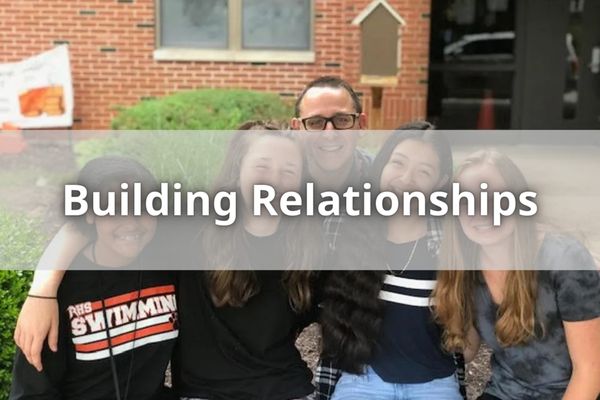
Having discussed social and emotional support in the previous section, it’s now time to turn our focus towards building relationships. Relationships are essential for psychological wellbeing and academic success – they can help us make positive progress towards graduation!
Here are three key elements of establishing successful relationships:
- Affirmation – Make sure you take time each day to affirm both yourself and those around you by saying something kind or validating their feelings. This is crucial for communicating with school community stakeholders including teachers, administrators, parents, and other students.
- Couple Connections – Spend some quality one-on-one time with your partner on a regular basis without any distractions like phones or television; this will help strengthen your relationship by creating an environment where each person feels heard.
- Reach Out – Don’t be afraid to reach out if you’re feeling lonely or need someone to talk to; there are many resources available that can help foster meaningful connections with others who share similar interests and experiences.
We have looked at how affirmation, couple connections, and reaching out can help build strong relationships but what happens when things don’t go according to plan? In the next section we will explore conflict resolution strategies which may help restore balance in challenging situations.
Conflict Resolution
It’s no secret that counselors work with students to help them better understand how to resolve conflicts and make decisions. Conflict resolution is a crucial part of our job, and it can be challenging for both the student and counselor! Fortunately, there are ways we can assist in providing coping strategies for these situations.
As liaisons between teachers, parents, and administrators – counselors must have the ability to navigate difficult conversations regarding conflict resolution. We want our students to feel empowered by their decision-making skills when presented with difficult situations. Through effective communication techniques like active listening, we strive to provide guidance while allowing our students to come up with solutions on their own.
We also strive to equip our students with real tools they can use such as problem solving methods or even understanding multiple perspectives from all parties involved in order to reach an agreement.
By having resources available at school, we ensure that each student has access to help when needed; this includes mental health resources for any additional support if necessary. It’s crucial for us as educators and counselors to encourage positive behaviors among our children so that they may take ownership of their actions and develop into self-sufficient problem solvers.
Let’s investigate the choices for mental health resources with this objective in mind.
Mental Health Resources
I work hard to meet my students’ needs in this area because I understand that mental health is a crucial component of their growth as individuals. I achieve this by working with other staff members to create approaches to problems like sadness and anxiety. When necessary, I refer students to qualified professionals who can provide additional assistance.
As a middle school counselor, I understand the importance of connecting our students with appropriate resources to help address their mental health concerns. My goal is to ensure they receive the support they need while attending school here.
Additionally, I work closely with families when needed by providing resources or referrals. It’s also essential to establish relationships with outside organizations dedicated to helping young people cope and manage their mental health struggles.
With these connections, we are better able to serve our students and prepare them for future success both inside and out of the classroom.
Moving forward, my focus will be on substance abuse prevention efforts within our school community.
Substance Abuse Prevention
As mental health counselors, we also provide direct support and guidance to help students navigate any potential barriers that may impede their success. Substance abuse prevention is an important part of fostering student well-being in our school environment.
It’s essential for us as counselors to ensure that our students have the necessary resources and knowledge to make informed decisions about substance use and its consequences. We must be proactive in educating and guiding our students on how to prevent drug and alcohol misuse. This includes giving them information regarding the physical risks associated with substance use, as well as providing emotional support while they learn healthy coping strategies.
We can do this through individual counseling sessions, group activities or workshops designed specifically around substance abuse prevention. It’s important that we create a safe space where our students feel comfortable talking openly about their concerns related to drugs or alcohol without fear of judgement or punishment.
By showing compassion towards our students and helping them develop positive self-care habits, we can equip them with the skills needed for making responsible choices when it comes to preventing substance misuse. With these measures in place, we can better prepare our students for tackling difficult topics such as coping with trauma and loss that may arise throughout life’s journey.
Coping With Trauma And Loss

I’m passionate about helping students cope with trauma and loss through the school counseling program. Despite their age, I know that middle schoolers can be deeply affected by a traumatic event or loss of any kind. As such, it’s my job as a counselor to facilitate healing in any way I can. With my master’s degree in Counseling Psychology, I am confident that I have all the necessary resources to help my students get back on track after experiencing distress.
I focus not only on addressing the pain associated with trauma and loss but also create activities to foster an environment of positivity and hope. Through one-on-one conversations, group discussions, and different types of art therapy sessions, I strive to make sure each student feels heard and supported during this difficult time.
Additionally, I provide them with strategies for self-care so they are better equipped to manage emotions when needed. My goal is to build connections between myself and the students while guiding them toward understanding their feelings more fully. By doing this, we work together towards creating positive pathways that ultimately lead to resilience and growth moving forward from tragedy or grief.
To transition into our next topic about developing self-confidence, let me say that building trust within our relationships is often half the battle!
Developing Self-Confidence
Once a student is able to cope with trauma and loss, the next step in their personal growth is learning how to develop self-confidence. School counselors provide assistance to help students build this important skill.
Education development includes discovering methods of building resilience, understanding strengths and weaknesses, learning relaxation techniques, and finding ways to reward oneself for accomplishments. This can be a difficult task but having a support system like school counselors provides guidance and resources that assist students in developing self-confidence.
Positive reinforcement also plays an important role in helping students understand what they are capable of achieving when they put effort into something. Celebrating victories or small successes such as completing assignments on time can give them the motivation needed to continue working toward larger goals.
By providing feedback and listening actively to their concerns, school counselors create an environment where students feel safe enough to express themselves openly without fear of judgement from others. They have the opportunity to gain valuable insight which allows them to learn more about themselves leading up better decision making over time.
When developing self-confidence, it’s critical for school counselors to remember that each individual student has different needs so one size does not fit all when addressing emotional issues related to education development. An approach tailored specifically for each student encourages them to take ownership of their own growth journey while inspiring them along the way towards becoming confident individuals who possess strong problem solving skills.
Now that we’ve discussed ways school counselors can assist students in gaining confidence, let’s move onto discussing how best practice approaches should apply when advocating for student rights within our schools today.
Student Advocacy
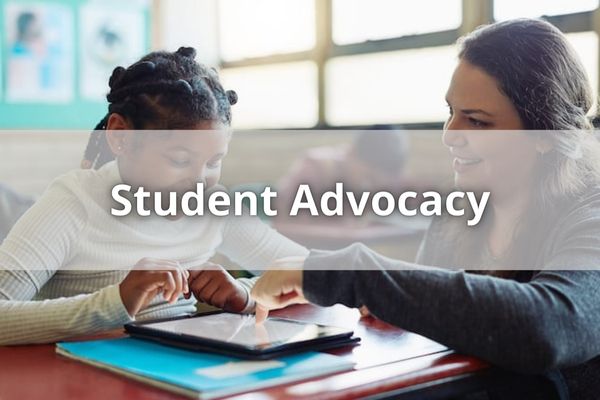
As a middle school counselor, I’m passionate about student advocacy. It’s my goal to provide services and resources that will help students succeed in their academic and personal lives. My focus is on helping each individual reach their full potential by providing them with the tools for success, not only within the classroom but also beyond it.
Here are three ways I work towards this commitment:
- Make sure students have access to resources they need to be successful while at school;
- Guide students through the process of discovering possible career paths;
- Work collaboratively with teachers and administrators to ensure student achievement.
I believe that all students should be given equal opportunities regardless of background or circumstance. This is why I strive to create an environment where every student feels seen, heard, respected and celebrated. By ensuring each student has access to quality education and support, we can help foster confidence and open doors for future successes.
Conclusion
As a middle school counselor, you are in a unique position to help young people find their way through adolescence. It is an important job that requires certain qualifications and continuing education to stay current with the field.
While it can be challenging, there are plenty of resources available for professional support when needed.
Being a middle school counselor offers rewards every day as you watch students grow and reach their potential. With your dedication and commitment, you will undoubtedly make a difference in the lives of many adolescents!

